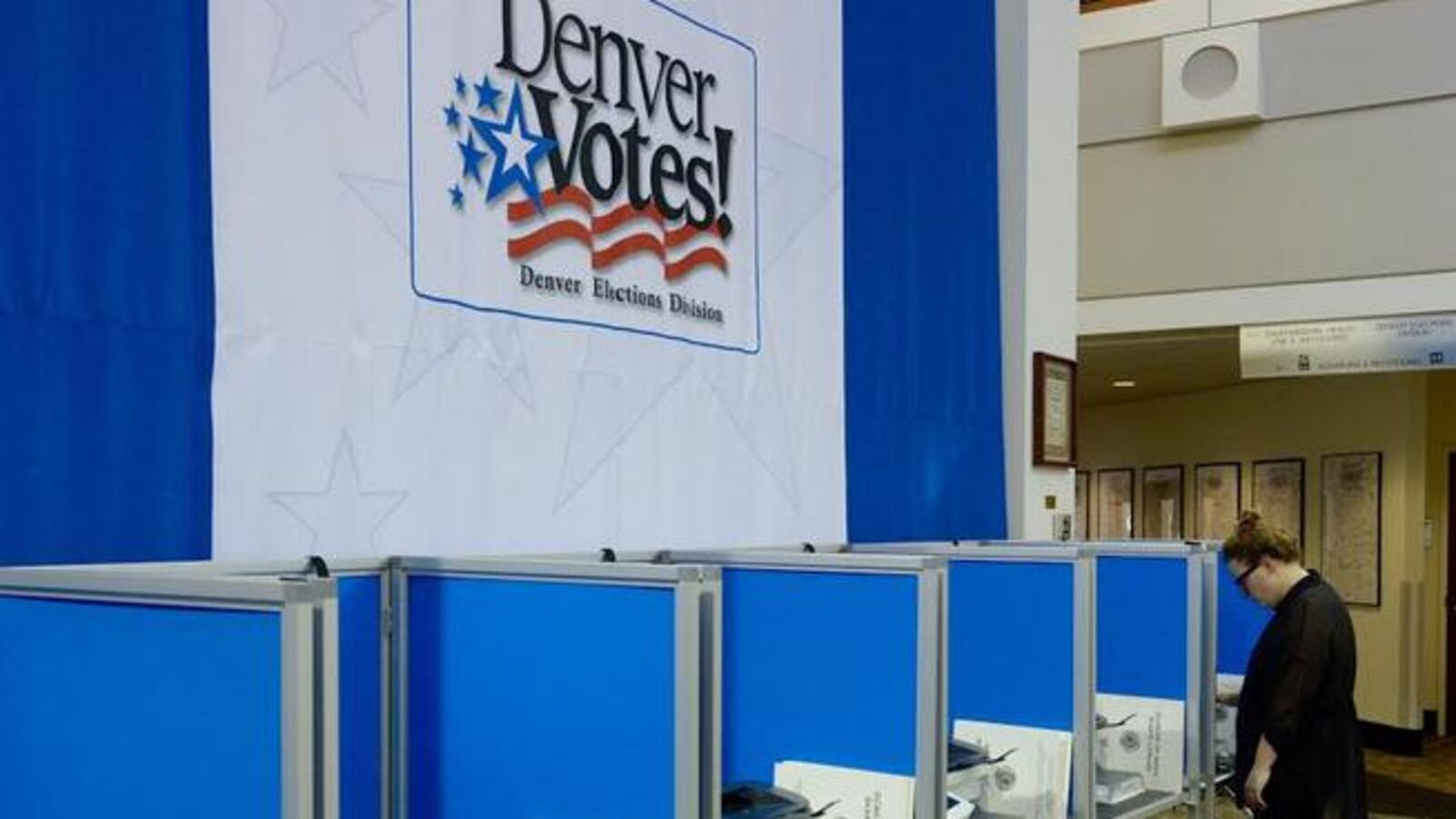Denver school board incumbents continue to raise more money than challengers who want to push the district in a different direction, according to the latest campaign finance reports.
Board vice president Barbara O’Brien, who formerly served as Colorado’s lieutenant governor and represents the city at-large on the board, continued to lead in fundraising. She’d raised a total of $116,046 as of Oct. 29, when the campaign finance filing period ended.
Close behind her was Mike Johnson, the incumbent who represents central-east Denver’s District 3, followed by political newcomer Angela Cobián, who is running to represent southwest’s District 2 and has the endorsement of the current board member.
Rachele Espiritu, the incumbent in a heated three-candidate battle for the District 4 seat in northeast Denver, had the fourth-highest fundraising total.
Johnson raised the most money — $19,381 — of any candidate in any Denver race during the 16-day filing period, which began Oct. 13 and ended Oct. 29. The filing period is the last one before Tuesday’s election.
Another candidate, Robert Speth, who is running against O’Brien for the at-large seat, brought in more money during that period, but it included $18,075 in loans to himself.
Four seats are up for grabs on the seven-member board, which means the election has the potential to shift the board’s balance of power. Currently, all seven members back the district’s direction and the vision of long-serving Superintendent Tom Boasberg.
The election has grown more rancorous in the final stretch, including heightened rhetoric about outside money and controversial campaign mailers seeking to cast supporters of the district’s strategies as allies of Donald Trump.
As of Friday, the Colorado Secretary of State’s office reported 53,949 Denver ballots had been turned in. In 2015, the last time there was a school board election, 124,119 votes were cast, which represented a 29 percent voter turnout, according to the Denver Elections Division.
Among the notable contributions in the most recent fundraising report:
Espiritu and Johnson received $10,000 each from University of Colorado president Bruce Benson. Espiritu also brought in $5,000 from Oakwood Homes CEO Pat Hamill, while Johnson got a $5,000 donation from Scott Reiman, CEO of Hexagon private investment company.
The biggest donor to Johnson’s challenger, union-backed teacher Carrie A. Olson, was the small donor committee of the Denver Classroom Teachers Association, which gave her $3,500.
The committee gave $2,000 to Xóchitl “Sochi” Gaytán, who is running against Cobián in the only race that doesn’t feature an incumbent, and $1,500 to Speth. He also received $3,500 from the Public Education Committee, a small donor committee associated with the statewide union.
The Denver union did not give any money to Jennifer Bacon, who it endorsed in District 4. Bacon’s biggest contribution was $1,000 from Denver City Council president Albus Brooks.
Tay Anderson, who is also running in the competitive District 4 race, got his largest donation — $400 — from former Denver mayor Wellington Webb, who endorsed him.
Julie Bañuelos, who is challenging O’Brien and Speth for the at-large seat, got $500 from the Green Party of the United States. Bañuelos’s campaign was previously in the red, having spent more than it had raised, but that was no longer the case as of Oct. 29.
Spending by outside groups barred from coordinating with campaigns has been significant. As of reports from earlier this week, independent committees that support DPS’s brand of reform have outspent opponents, primarily committees funded by teachers unions, by a 2-1 margin.
While the pro-reform groups have invested in all four races, the union-backed committees concentrated their efforts on two: backing Bacon in the northeast Denver race and and Gaytán in the southwest Denver race.

